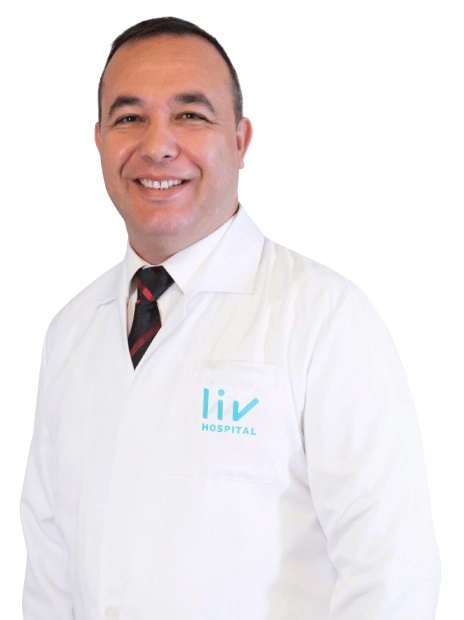
Being referred to a specialist can feel both relieving and scary. When a doctor sends you to a gastroenterologist, it’s because they think you need special care for your stomach health.
Digestive problems can worry you a lot. A gastrointestinal doctor is a top expert in treating stomach and digestive system issues. They handle problems with the gut, pancreas, liver, and gallbladder.
If you’re dealing with ongoing stomach pain, chronic diarrhea, or other GI issues, agastroenterologist is here to help. They offer the care you need for better treatment and health.
Key Takeaways
- A doctor refers patients to a gastroenterologist for specialized digestive care.
- Gastroenterologists diagnose and treat disorders of the digestive system.
- Specialized care is key to managing ongoing digestive problems.
- Early diagnosis and treatment can lead to better health outcomes.
- A gastrointestinal doctor has the knowledge to tackle complex GI issues.
What Does a Gastroenterologist Specialize In?

A gastroenterologist is a doctor with special training. They deal with diseases of the digestive system. They are key in diagnosing and treating many conditions.
The Digestive System Experts
Gastroenterologists know a lot about digestive health. They can handle everything from heartburn and irritable bowel syndrome to serious diseases like colorectal cancer and liver disorders. They offer personalized care for each patient.
Specialized Training and Qualifications
To be a gastroenterologist, one needs a lot of education and training. After medical school, they do three years of additional study. This prepares them for endoscopies and colonoscopies and gets them certified.
Gastroenterologists keep learning to give the best care. They stay up-to-date with new medical discoveries. This ensures patients get the latest and best treatments.
5 Common Symptoms That Trigger a Referral to a Gastroenterologist
Seeing a gastroenterologist is often needed when certain stomach symptoms show up. These signs might point to serious health issues that need expert care. Let’s look at the symptoms that might lead your doctor to suggest a visit to a gastroenterologist.
Persistent Abdominal Pain and Discomfort
Persistent abdominal pain is a top reason for a gastroenterologist visit. This pain can feel like cramps, tenderness, or a dull ache in your belly. If you’re feeling ongoing discomfort that won’t go away, it’s time to see a doctor. Issues like irritable bowel syndrome (IBS), inflammatory bowel disease (IBD), or gallstones could be the cause.
Chronic Diarrhea or Constipation
Dealing with chronic diarrhea or constipation can really affect your life. These problems might be linked to IBS, IBD, or other digestive system issues. A gastroenterologist can figure out what’s causing it and suggest the right treatment.
Gastrointestinal Bleeding and Blood in Stool
Seeing blood in your stool or having gastrointestinal bleeding is a serious warning sign. It could mean a big problem in your digestive tract, like ulcers, polyps, or even colorectal cancer. A gastroenterologist can run tests to find out where the bleeding is coming from.
Difficulty Swallowing or Chronic Heartburn
Difficulty swallowing (dysphagia) or having chronic heartburn are symptoms you shouldn’t ignore. Dysphagia might mean a problem with your esophagus, while chronic heartburn could be a sign of GERD. Both can be managed with the right help from a gastroenterologist.
Knowing these symptoms can help you know when to seek special care. If you’re dealing with any of these issues, talk to your primary care doctor about seeing a gastroenterologist. Getting a diagnosis and treatment early can greatly improve your gut health.
7 Serious Conditions That Require a Gastroenterologist’s Expertise

The digestive system faces many serious issues that need a gastroenterologist‘s help. These doctors are experts in diagnosing and treating complex gut problems. These problems can really affect a person’s quality of life. Let’s look at seven serious conditions that need a gastroenterologist’s care.
Colorectal Cancer: Understanding Your Risk
Colorectal cancer is a big health worry. 1 in 24 men and 1 in 26 women are at risk. Early detection is key, so screening starts at age 45. A gastroenterologist can check your risk and suggest screenings.
Inflammatory Bowel Disease: Crohn’s and Ulcerative Colitis
Inflammatory bowel disease (IBD), like Crohn’s disease and ulcerative colitis, needs ongoing care. Gastroenterologists are key in diagnosing and treating IBD. They help manage symptoms and improve life quality.
Liver Disorders and Hepatitis
Liver issues, including hepatitis, are critical areas for gastroenterologists. They diagnose and manage liver problems. This ensures patients get the right treatment for their liver health.
Gastroesophageal Reflux Disease (GERD)
GERD is a chronic issue that can cause serious problems if not treated. Gastroenterologists help manage GERD symptoms. They prevent damage to the esophagus.
Other serious conditions that need a gastroenterologist’s help include:
- Gastrointestinal bleeding: Bleeding in the digestive tract is serious and needs quick medical help.
- Liver cirrhosis: Liver scarring can lead to liver failure if not managed right.
- Pancreatitis: Pancreas inflammation can be acute or chronic and needs special care.
In conclusion, gastroenterologists are vital for managing serious gut conditions. If you’re experiencing symptoms or at risk, seeing a gastroenterologist is key for your digestive health.
The Critical Importance of Gastroenterologist Screening
Getting screened by a gastroenterologist is key to staying healthy, mainly for colorectal cancer. We’re seeing big changes in guidelines that highlight the need for catching problems early.
The American Cancer Society now says to start colorectal screening at 45, not 50. This change is because more young people are getting colorectal cancer.
New Guidelines: Colorectal Screening Starting at Age 45
New guidelines push for people to take charge of their gut health. Starting screenings at 45 can catch colorectal cancer early. This can lead to better treatment results.
Some important things to remember:
- Screening can find colorectal cancer early, when it’s easier to treat.
- Family history matters; if you have a history of colorectal cancer, you might need to start screening sooner.
- There are many screening options, like colonoscopies, stool tests, and more.
Early Detection and Improved Treatment Outcomes
Early detection through gastroenterologist screening can greatly improve treatment for colorectal cancer. When caught early, the five-year survival rate for colorectal cancer is much higher.
Early detection brings many benefits:
- You have more treatment options.
- Less invasive procedures might be possible.
- Survival rates improve.
When to Advocate for Your Own Referral
If you’re worried about symptoms like persistent stomach pain, chronic diarrhea, or bleeding, don’t wait. Advocate for yourself and see a gastroenterologist.
Being proactive about your health can greatly impact your diagnosis and treatment.
Conclusion: Addressing the Gastroenterologist Shortage Crisis
The United States is facing a big healthcare problem. By 2025, we might not have enough gastroenterologists for over 49 million people. These doctors are key in treating many digestive issues.
It’s important to know what a gastroenterologist means. They are doctors who deal with the stomach and intestines. Knowing what is a GI doctor helps patients see the value of their care.
As more people need these doctors, we must find a solution. We need to make sure everyone can get the care they need. By understanding the role of gastroenterologists, we can help millions of Americans.
FAQ’s:
What is a gastroenterologist?
A gastroenterologist is a doctor who focuses on the digestive system. This includes the stomach, intestines, pancreas, liver, and gallbladder. They diagnose and treat problems in these areas.
What kind of conditions do gastroenterologists treat?
They handle many conditions. This includes common issues like heartburn and irritable bowel syndrome. They also deal with serious diseases like colorectal cancer and liver disorders.
What are the symptoms that may prompt a referral to a gastroenterologist?
You might need to see a gastroenterologist if you have persistent pain in your stomach. Also, if you have chronic diarrhea or constipation, or if you’re bleeding in your gut. Difficulty swallowing and chronic heartburn are other signs.
What is the importance of screening for colorectal cancer?
Screening for colorectal cancer is very important. It helps find the disease early, which improves treatment chances. New guidelines suggest starting screenings at age 45 for those with a family history of the disease.
What is the role of a gastroenterologist in managing inflammatory bowel disease?
Gastroenterologists are key in managing diseases like Crohn’s and ulcerative colitis. They provide ongoing care to prevent complications and manage symptoms.
What is gastroesophageal reflux disease (GERD)?
GERD is when stomach acid flows back into the esophagus. This causes heartburn and discomfort. A gastroenterologist treats this condition.
Why is the projected shortage of gastroenterologists a concern?
The shortage of gastroenterologists is a big worry. It will affect millions of Americans. It makes it hard for people to get the care they need, leading to delayed diagnosis and treatment.
What is the training and qualifications required to become a gastroenterologist?
To be a gastroenterologist, one needs a lot of education and training. This includes three years of study after medical residency. This prepares them to perform specialized procedures.
References
- American Cancer Society. (2023). Colorectal Cancer Facts & Figures. Retrieved fromhttps://www.cancer.org/research/cancer-facts-statistics/colorectal-cancer-facts-figures.html



































